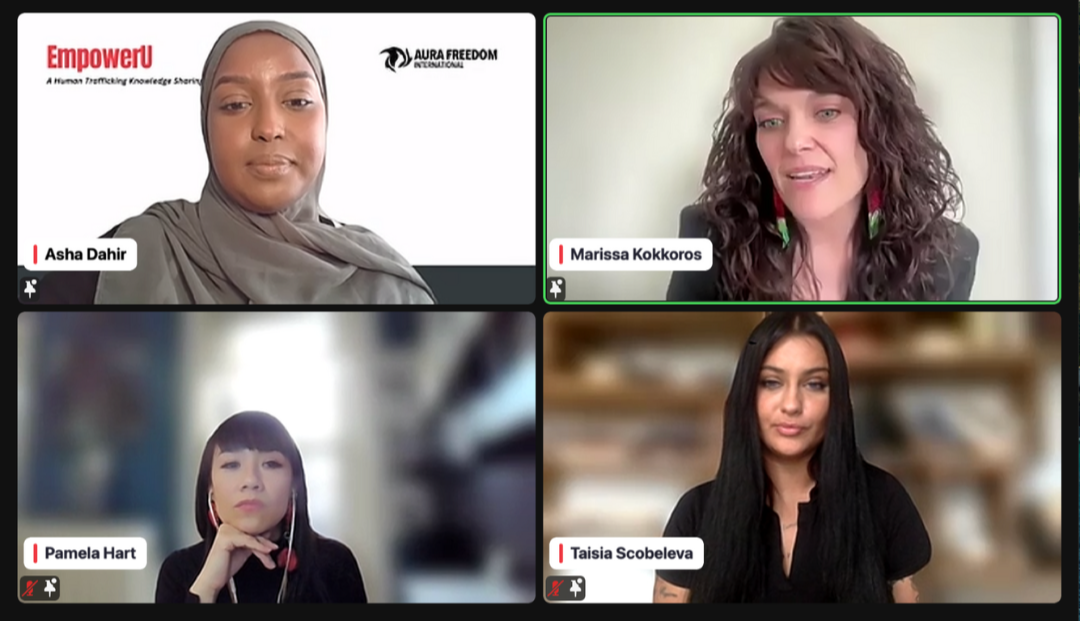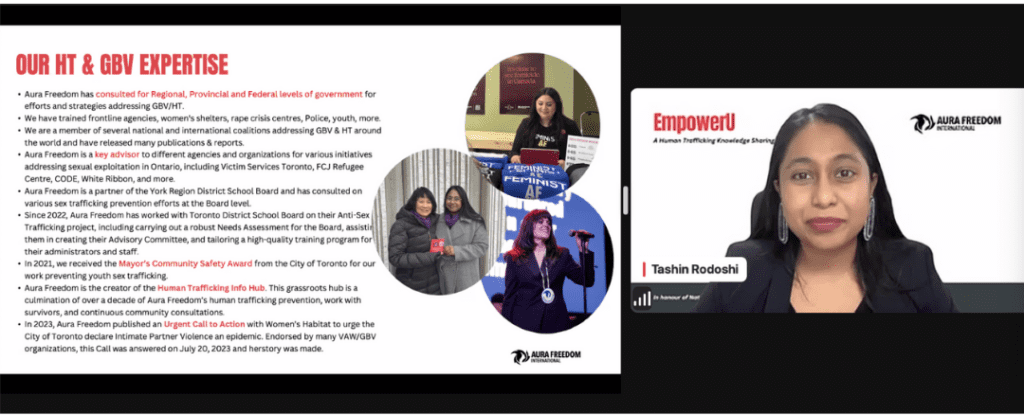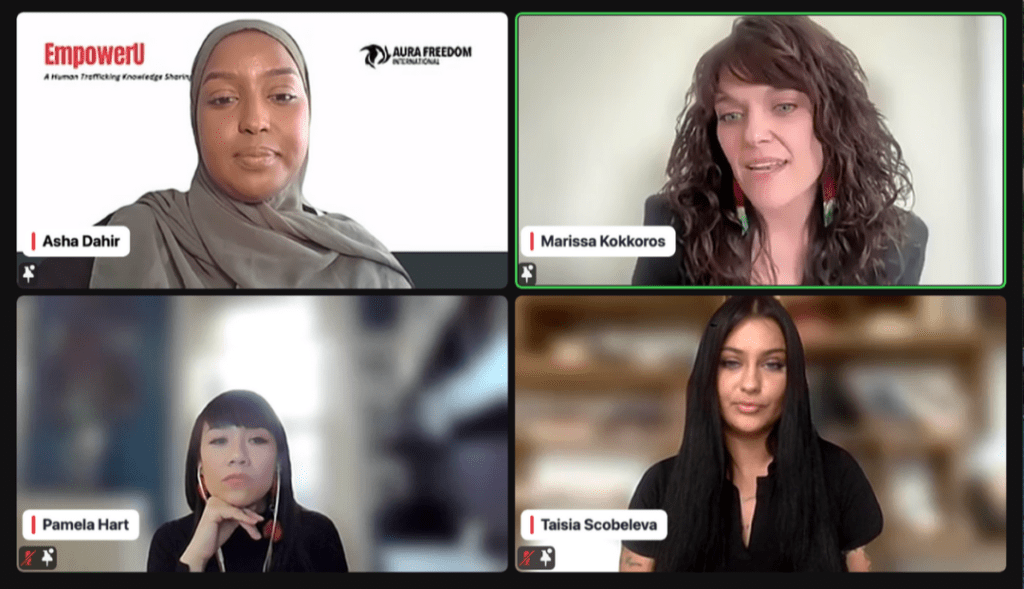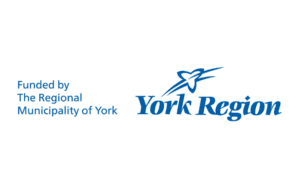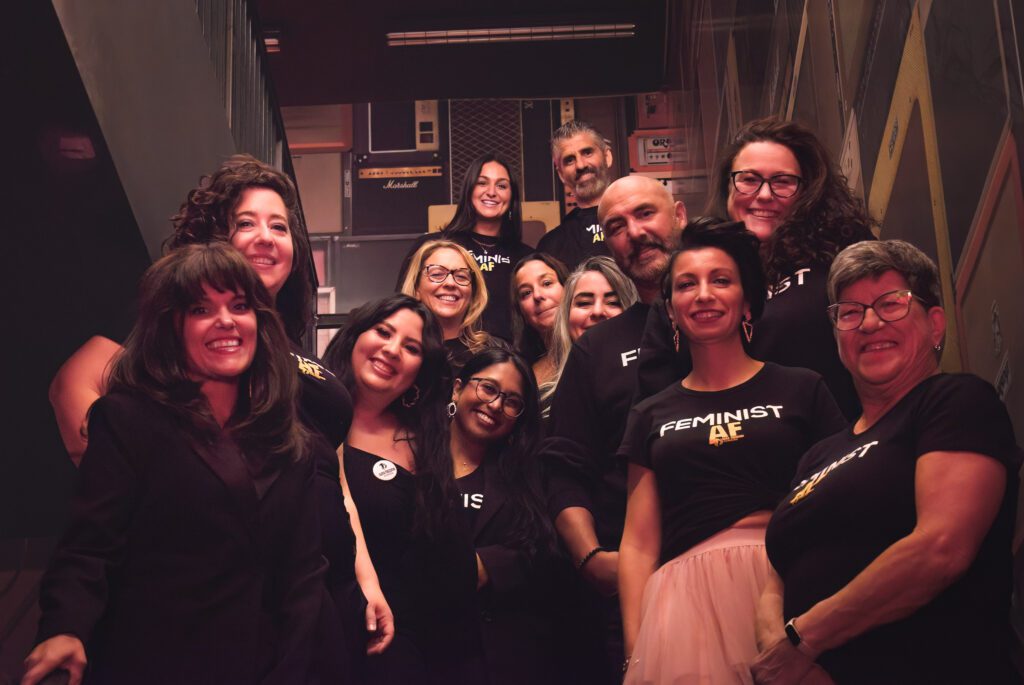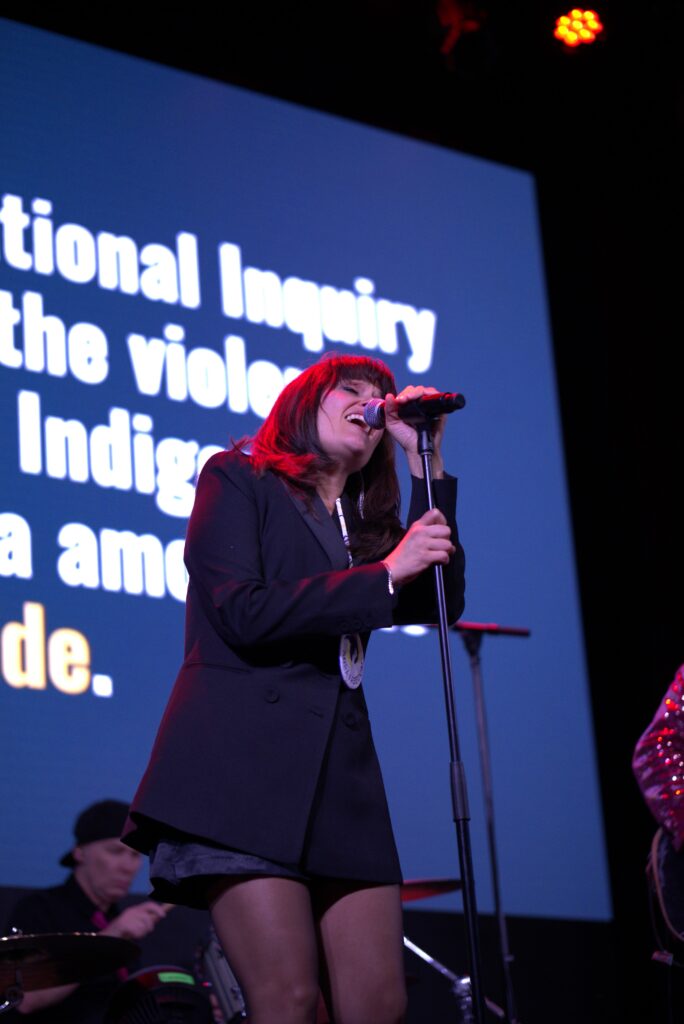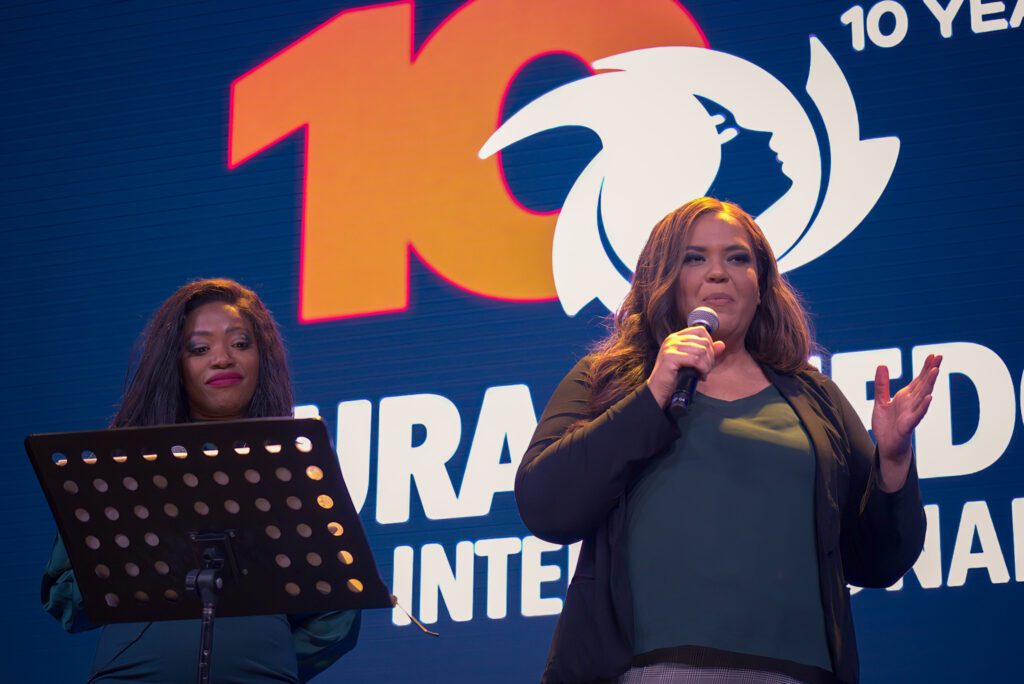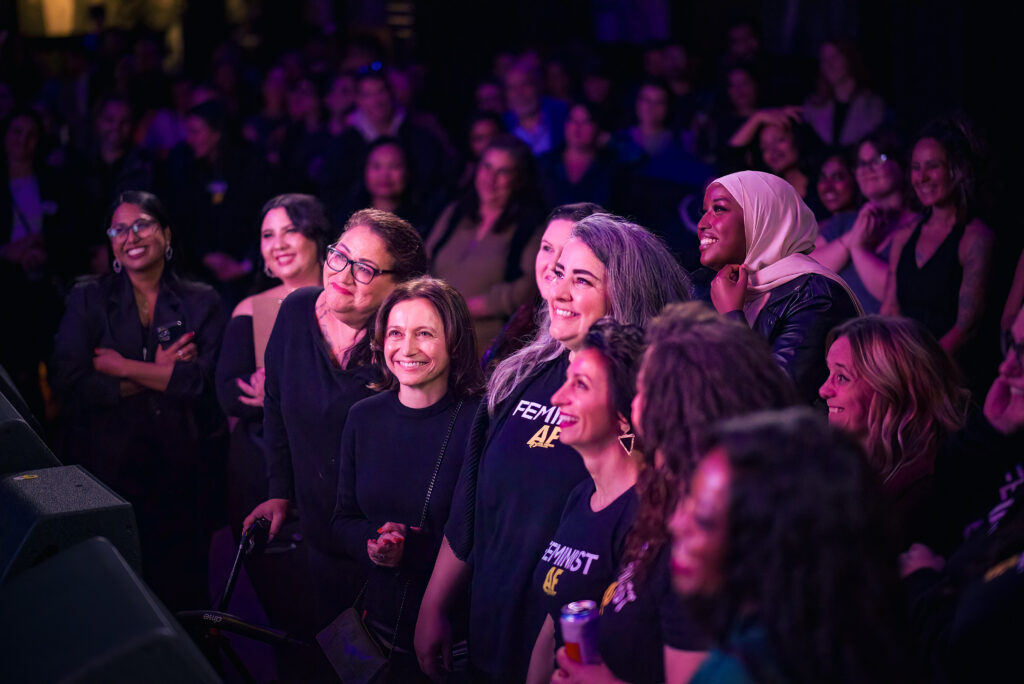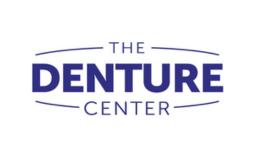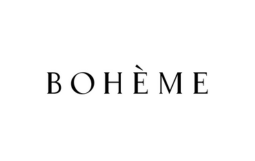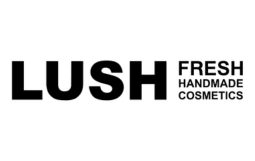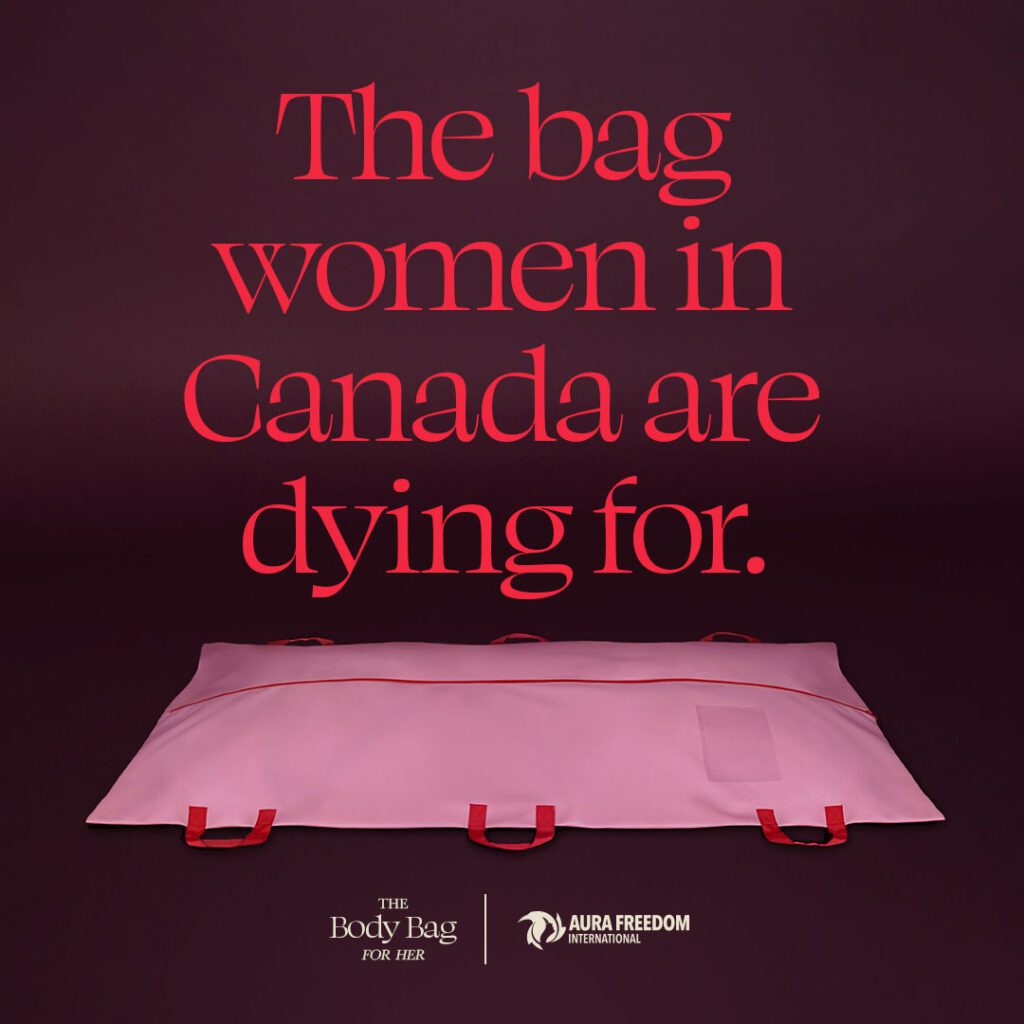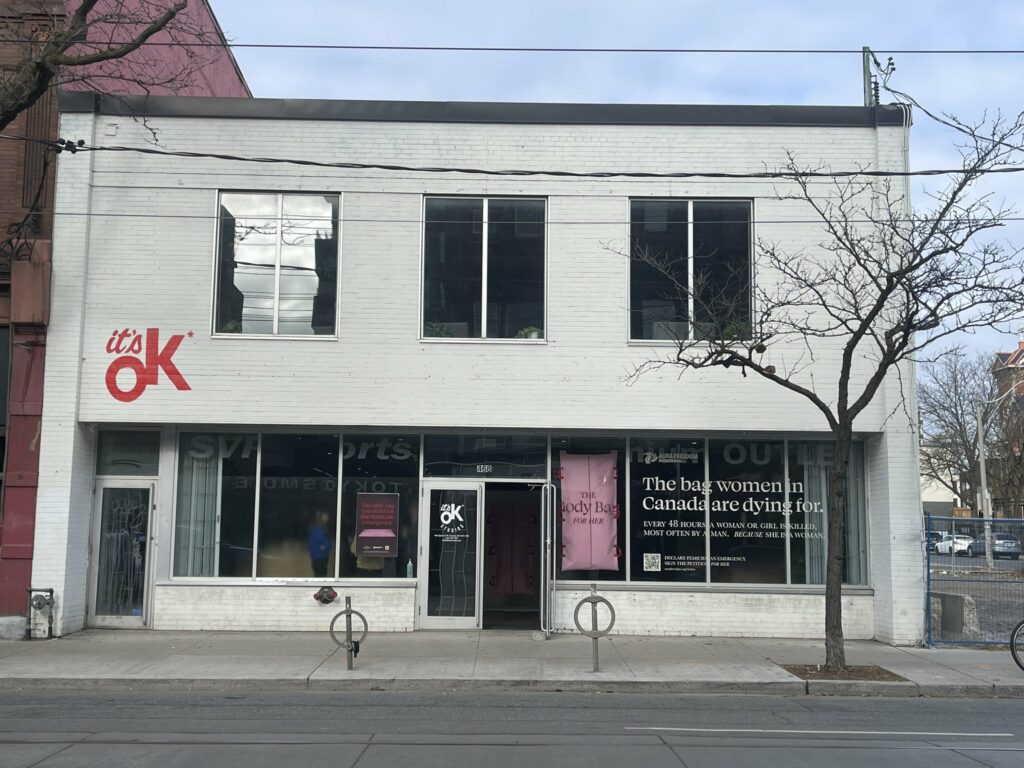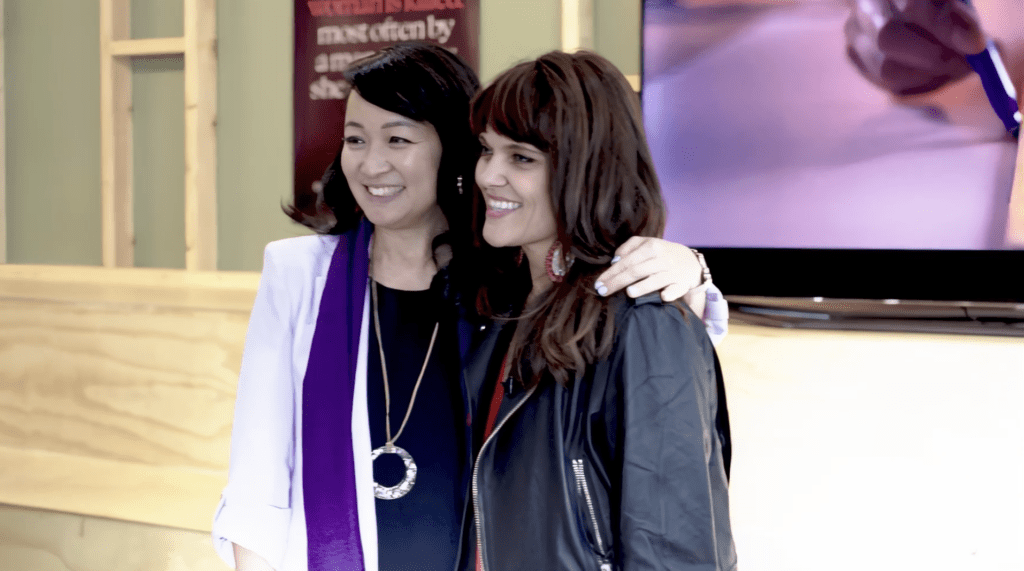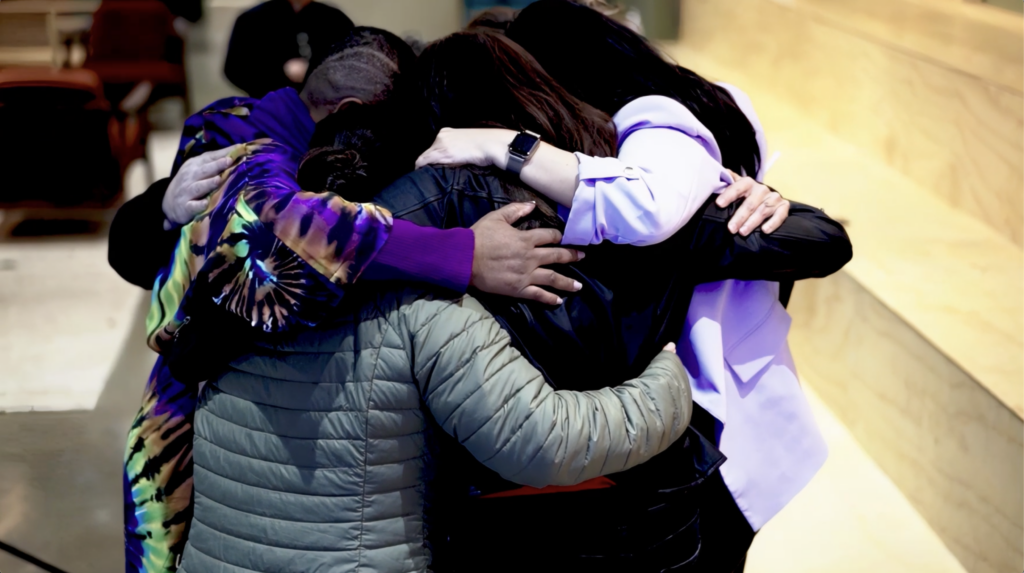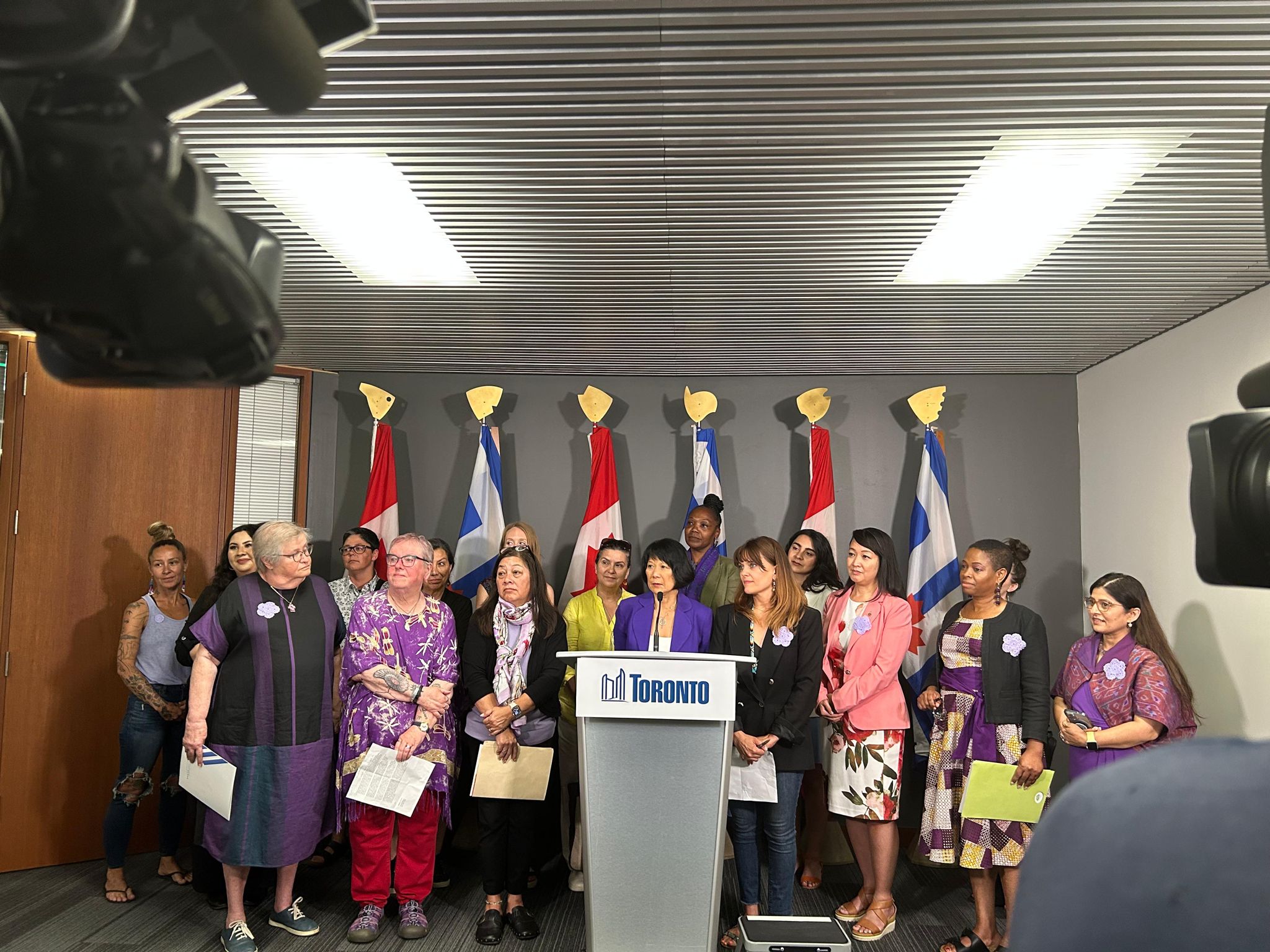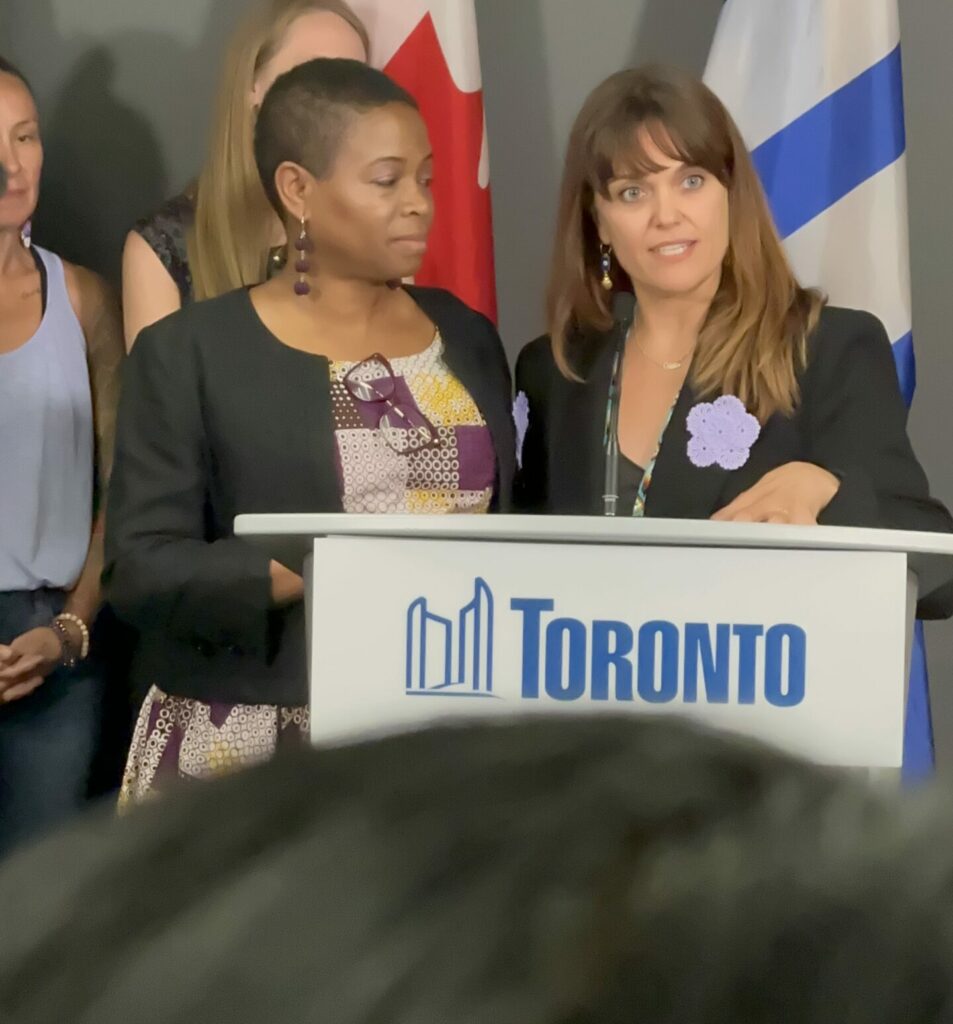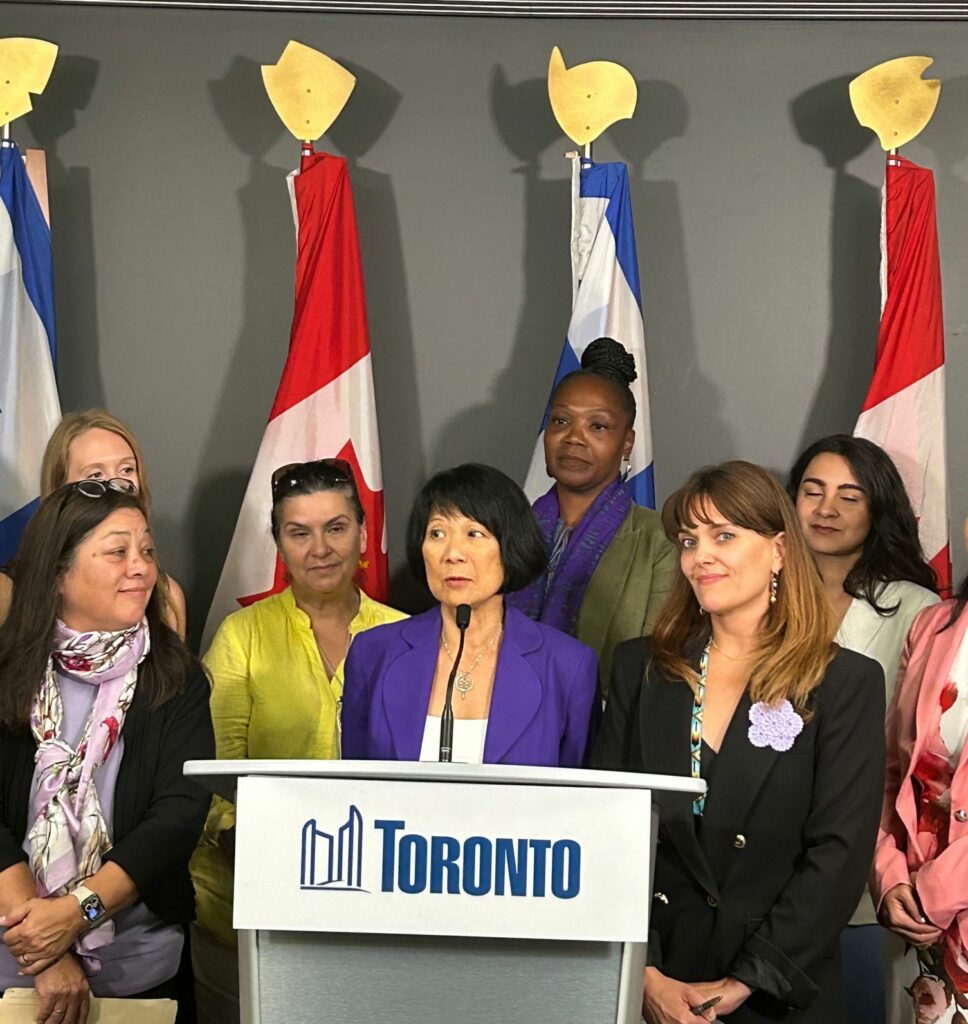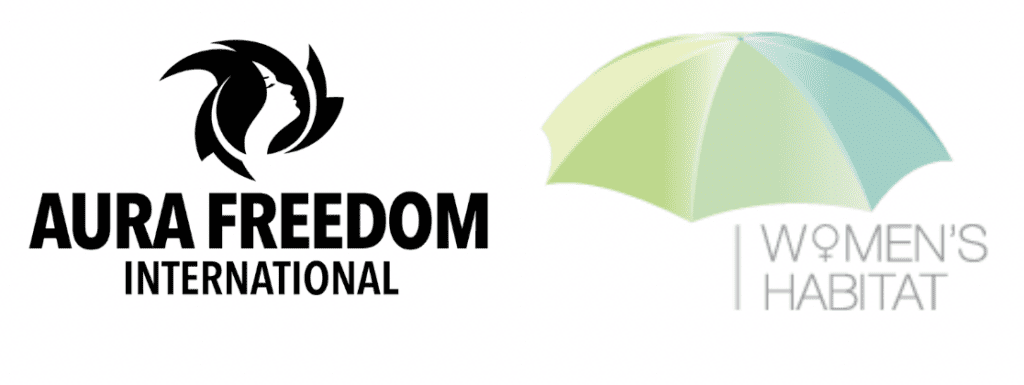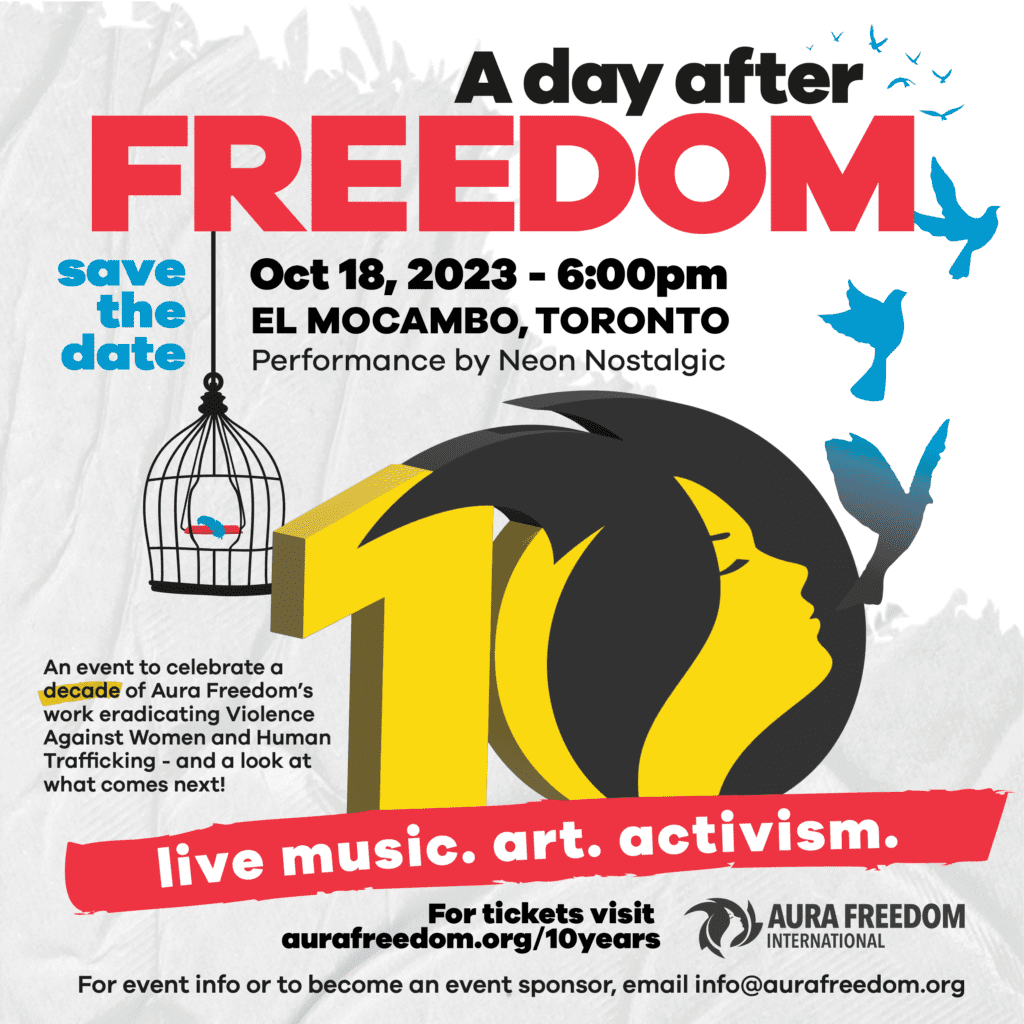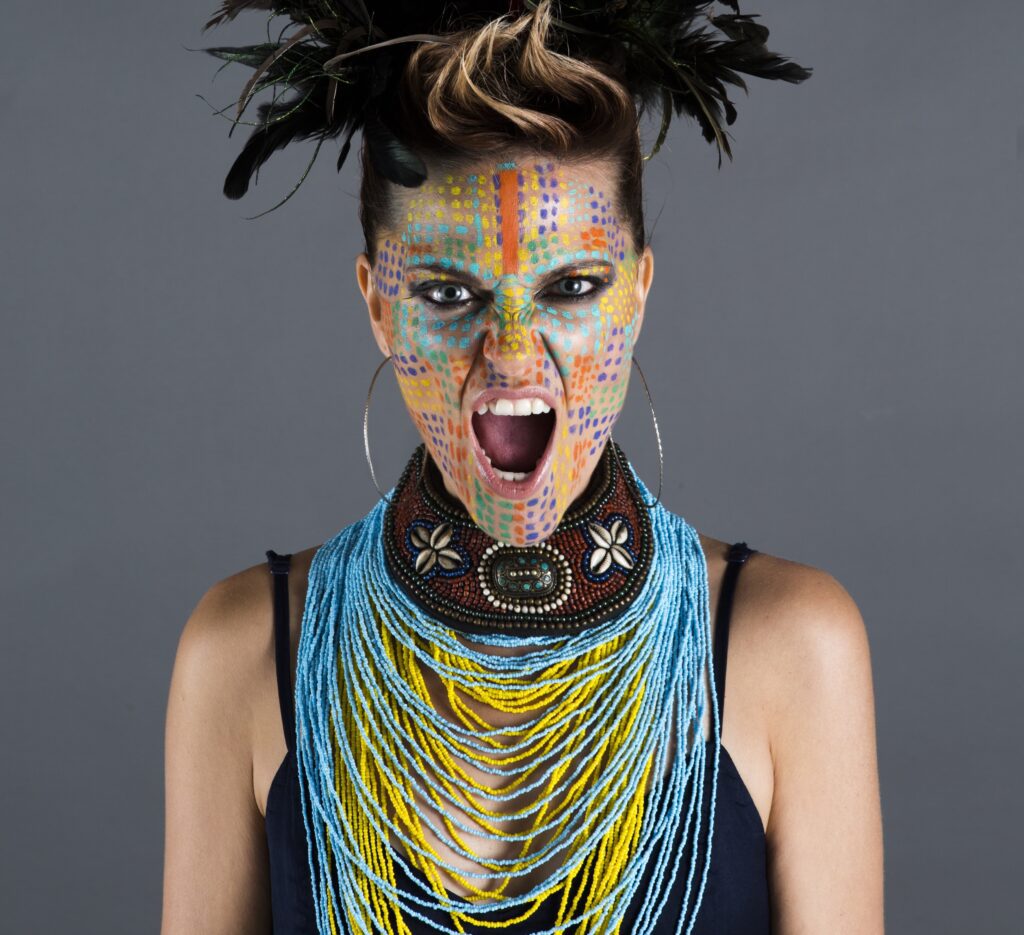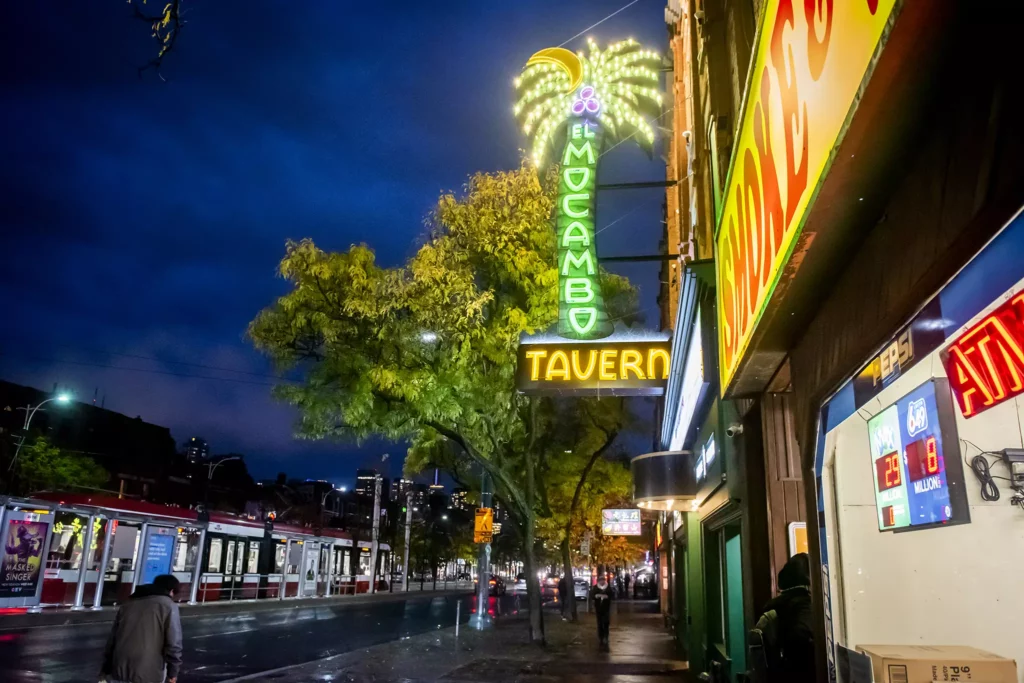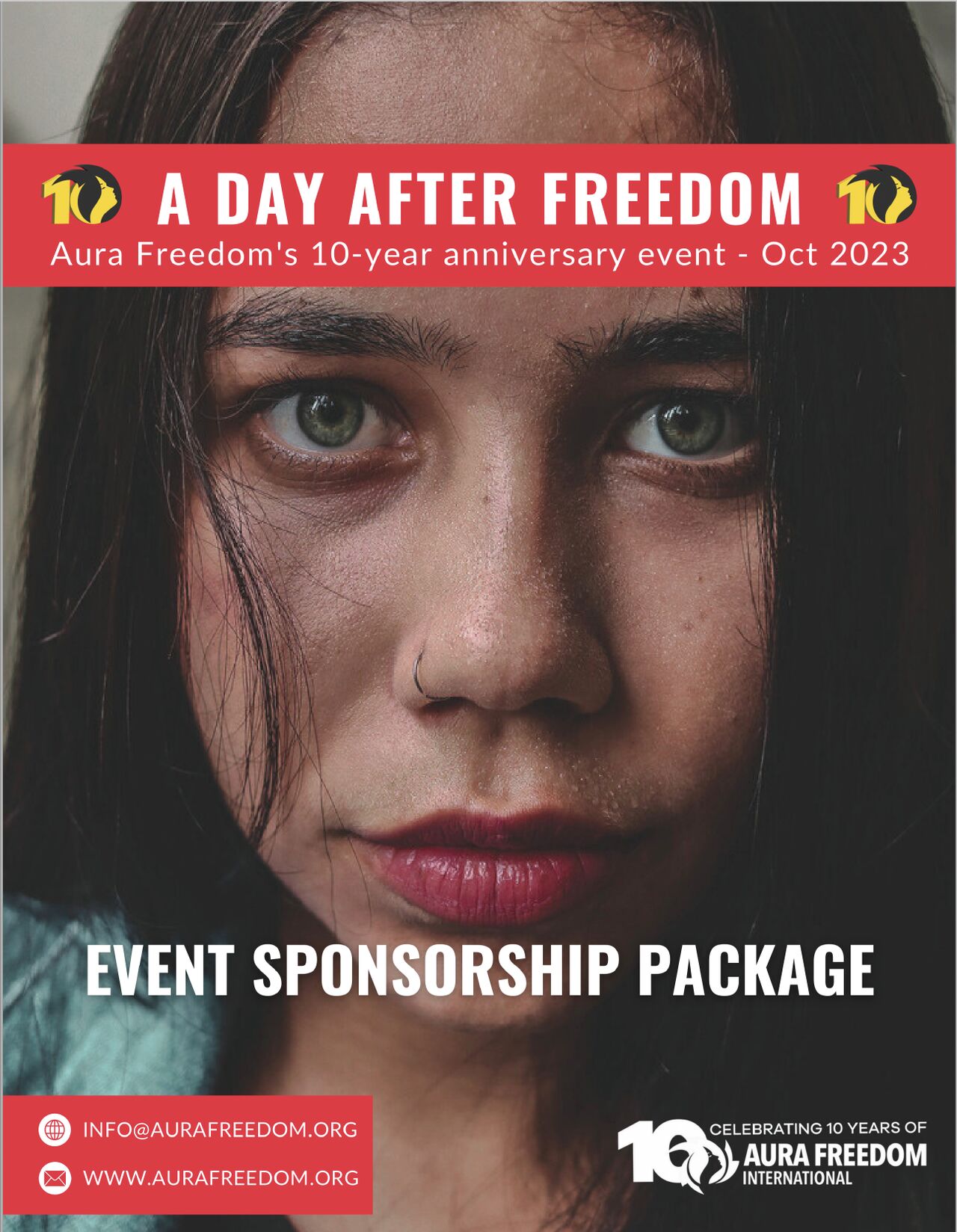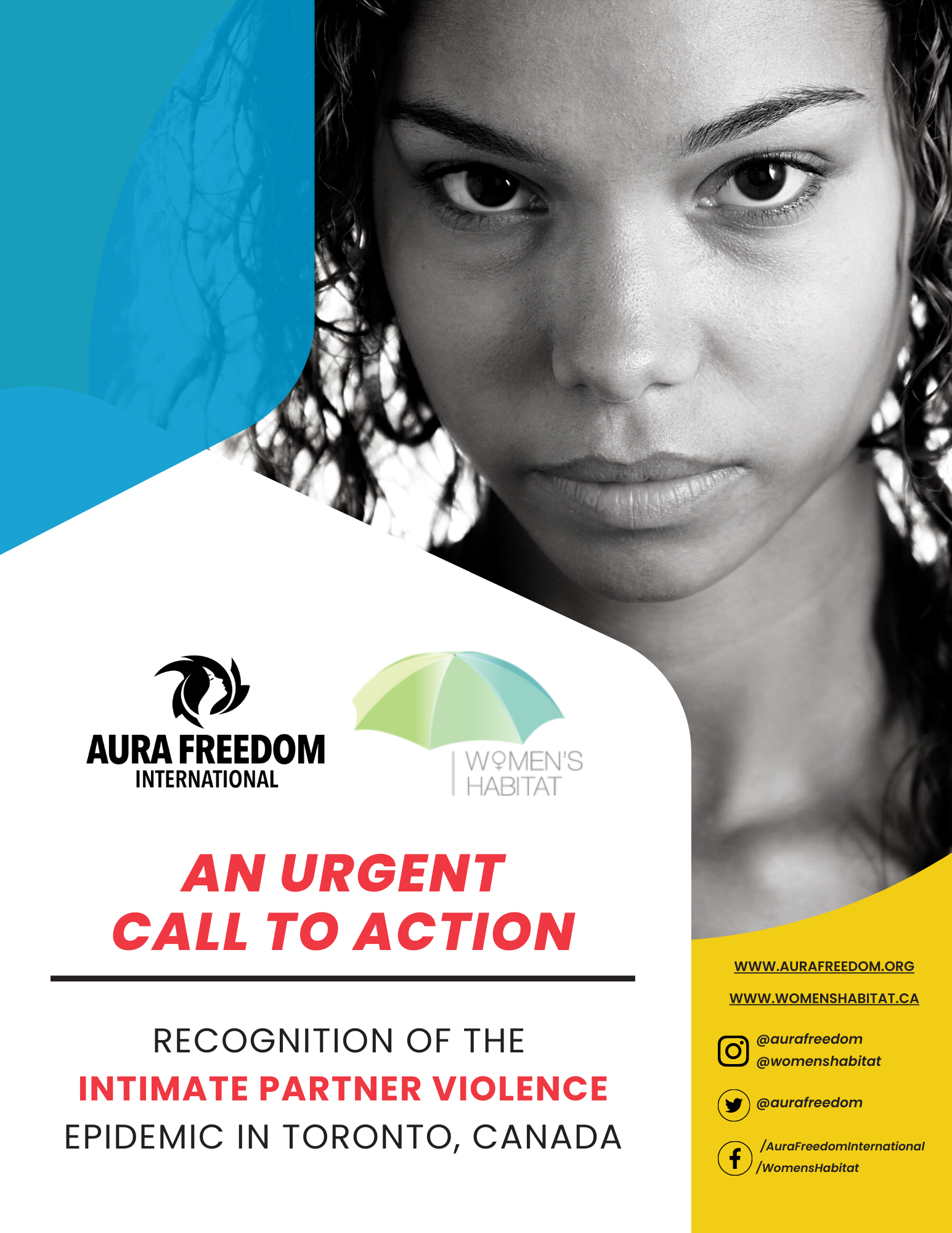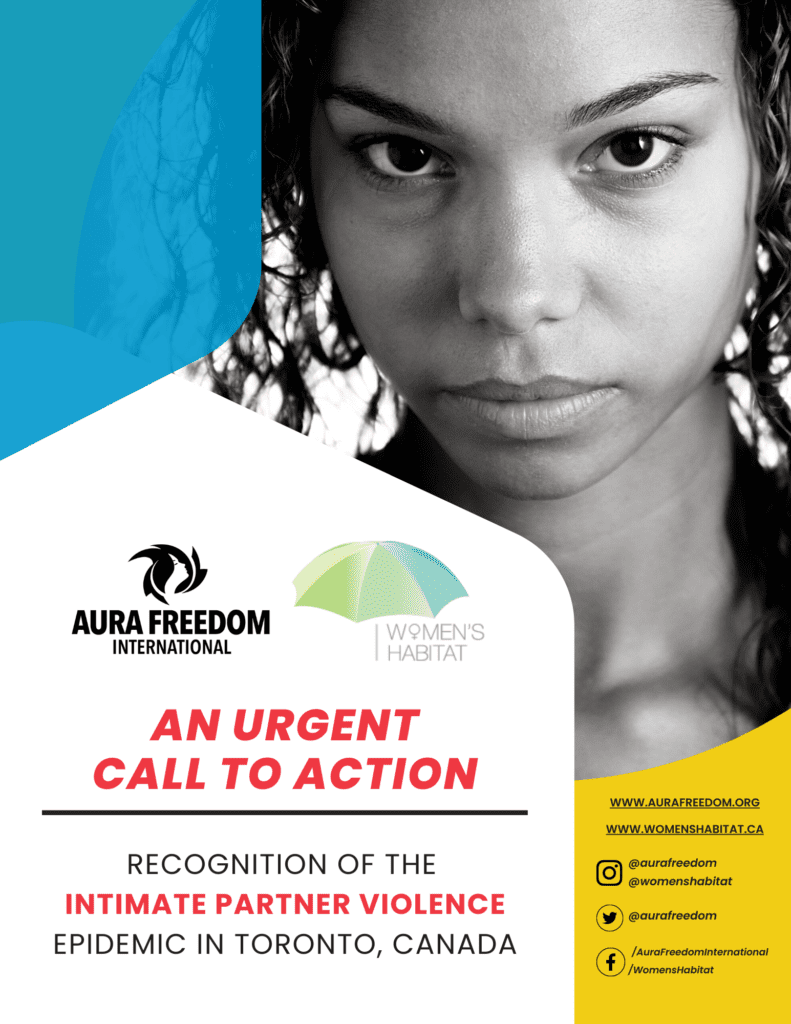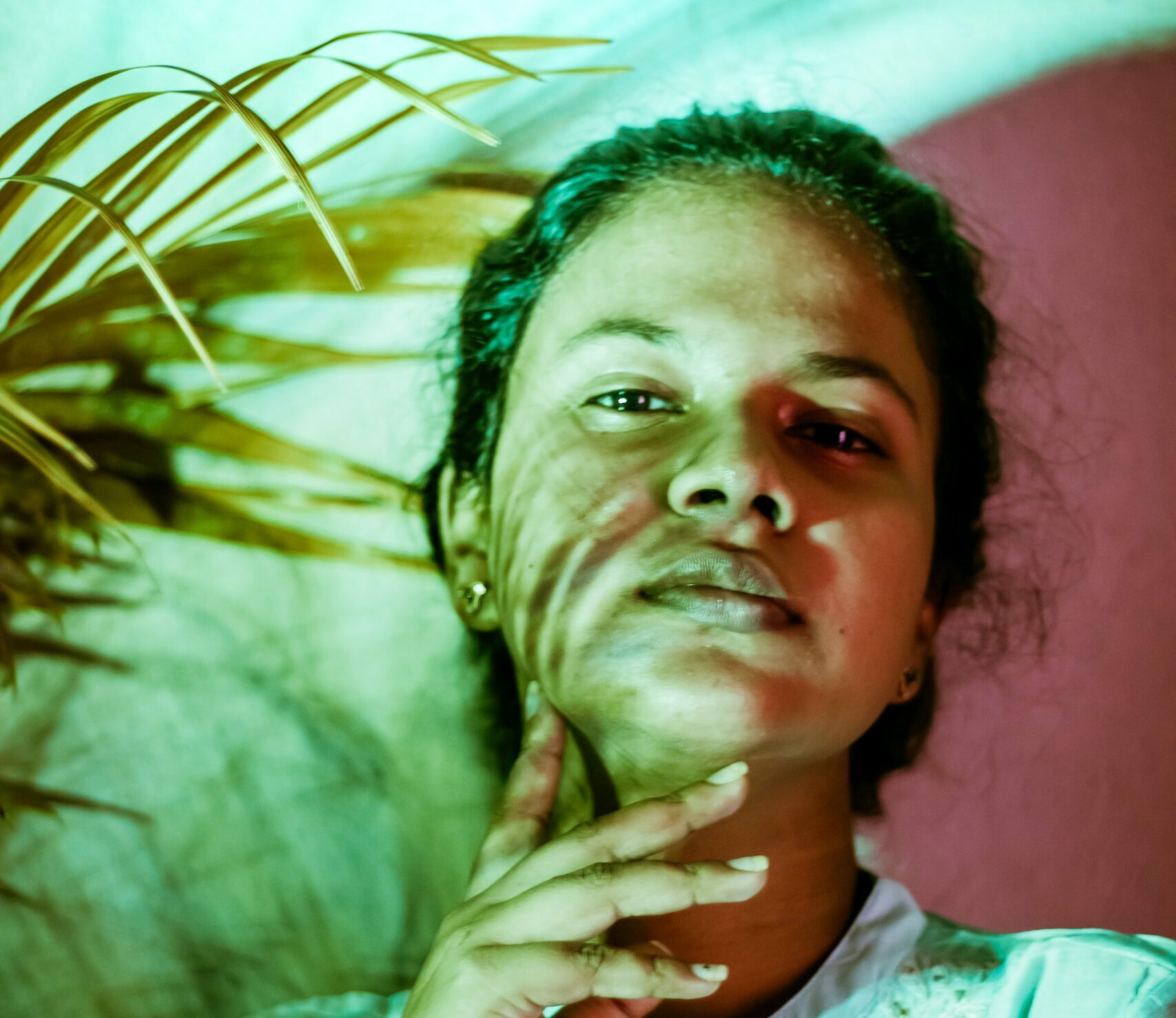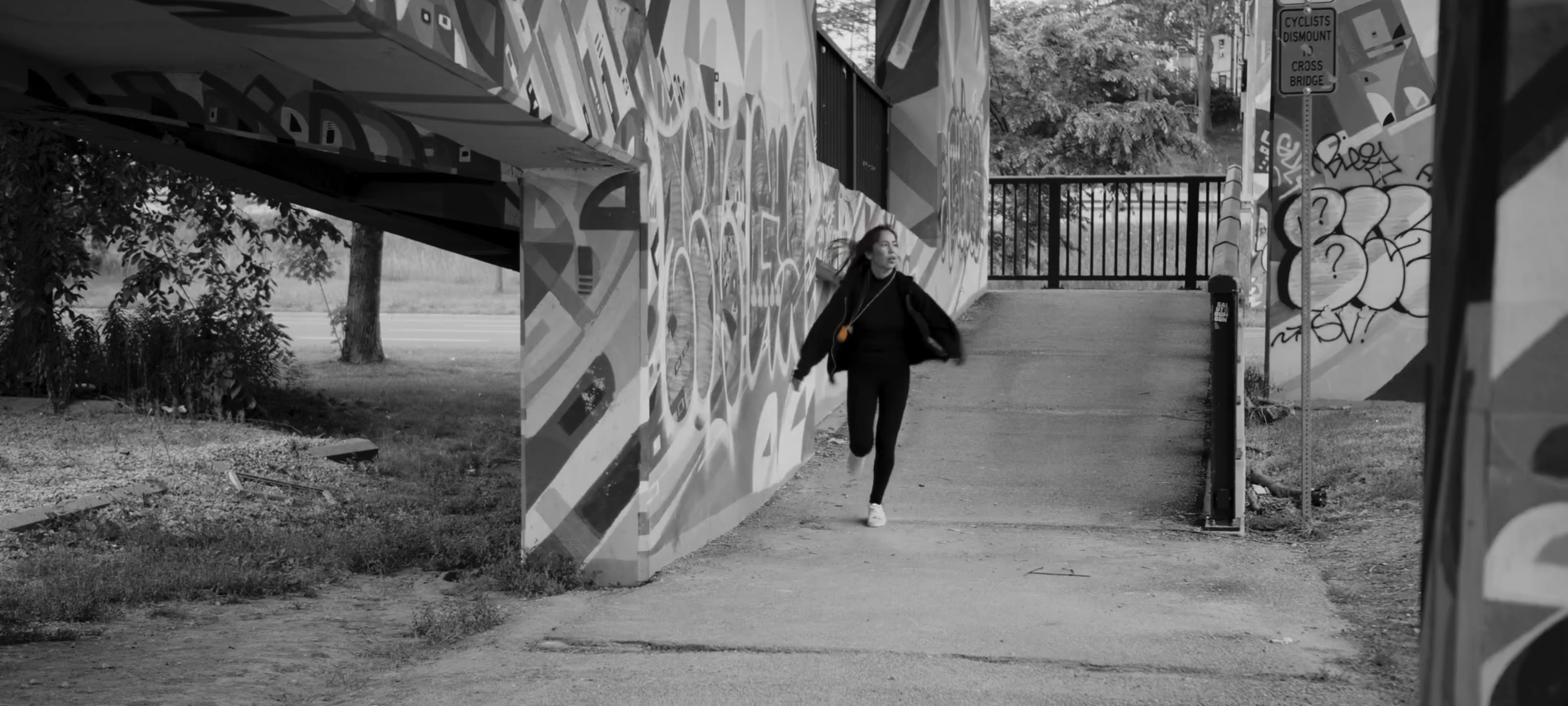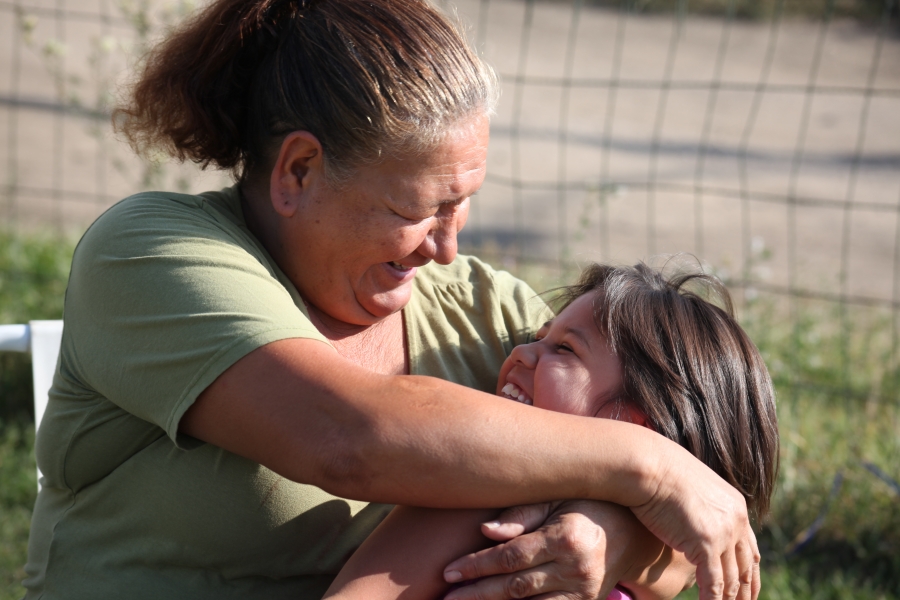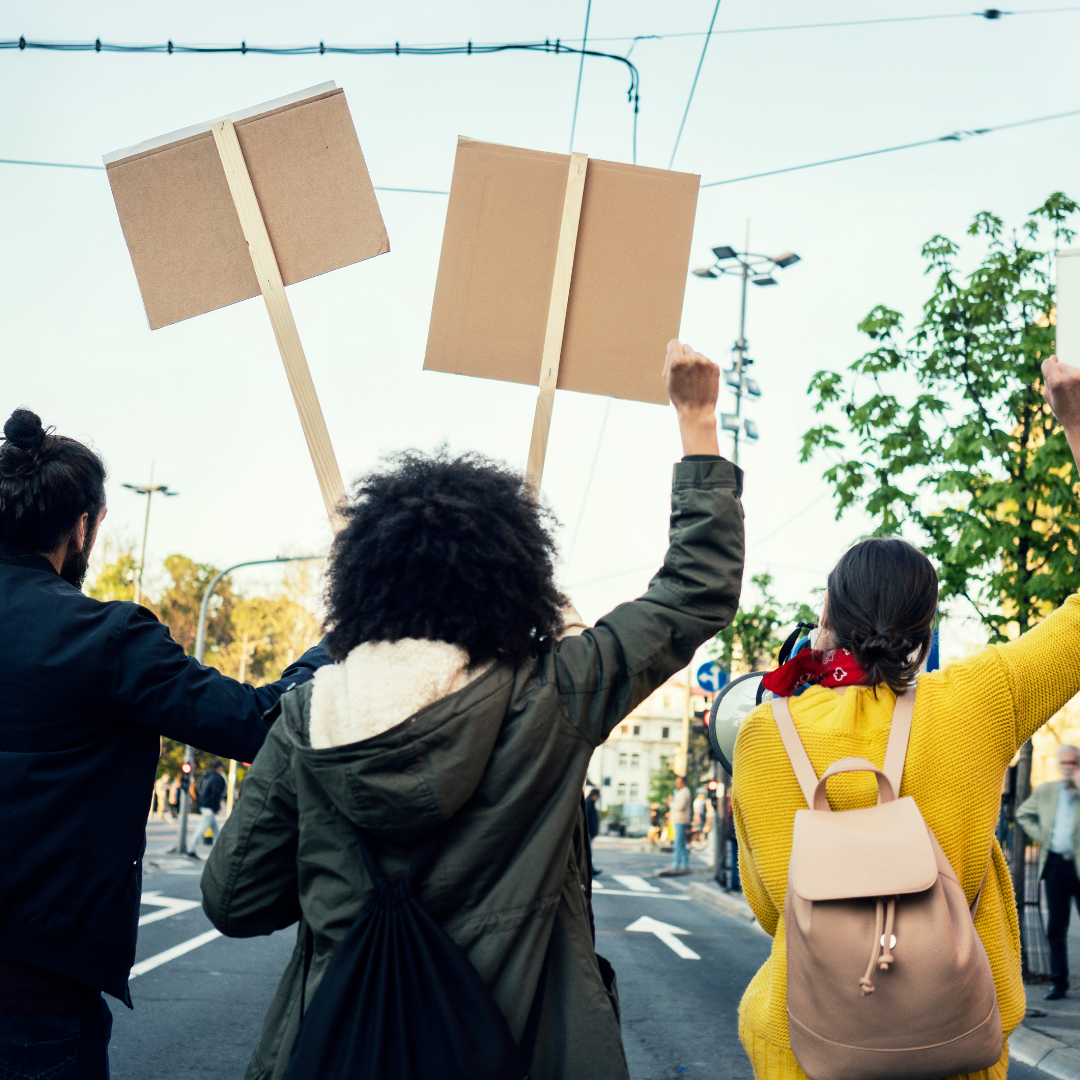June 2023
Introduction
Walk Free, an international human rights group working to eradicate all forms of modern slavery, recently released its 2023 Global Slavery Index (GSI). The 2023 GSI explores extensive data, research, and essays to highlight the existence of modern slavery and human trafficking across diverse industries and countries today. It is presented as a tool for citizens, civil society, businesses, and government to understand the scale of the problem, current responses, and contributing factors that they can advocate for, with the goal of building sound policies and programs to end modern slavery.
It also shares the fact that the efforts of many wealthy countries to combat modern slavery have stagnated and in some cases, hard won progress has been reversed. Given the influx of violence against women and girls over the COVID-19 pandemic, now more than ever, we need global commitment and a sense of urgency to address and prevent modern slavery.
The following is Aura Freedom International’s overview of the 2023 Global Slavery Index, through the lenses of gender, intersectional feminism, human rights and prevention.
Modern Slavery
The 2023 GSI unpacks the depths of modern slavery to explore its various forms, and the known names – from forced labour, forced marriage, debt bondage, sexual exploitation, human trafficking, slavery-like practices, forced or servile marriage, and the sale and exploitation of children.
Modern slavery is a hidden crime that impacts every country in the world. It refers to situations of exploitation that a person cannot refuse or leave because of threats, violence, coercion, deception, or abuses of power as stated in the GSI. We applaud Walk Free for the inclusion of coercion as part of the definition of modern slavery. At Aura Freedom, we have always advocated for the recognition of Coercive Control. Indeed, it is one of the tactics traffickers use to keep survivors from leaving or reaching out for help. Even though you cannot “see” coercion, it is present in most situations of sexual exploitation and human trafficking, and also in Intimate Partner Violence / Domestic Violence.
In addition, to further understand the intersections and complexities of modern slavery, the GSI also shares the diagram of “What is Modern Slavery” to illustrate the overlap between human trafficking with forced labour, slavery and slavery-like practices, included below.

Controlling COVID-19, Compounding Injustice – Gender-Based Violence (GBV)
Certainly, COVID-19 had a catastrophic impact across communities, health, living, and working conditions. The Index shared recommendations from members of a survivors’ collective in India to capture the devastating rise of modern slavery.
Global lockdowns created new risks and abuses, discrimination for numbers of people who have been pushed into survival mode. Mass unemployment, high personal debt, and limited government support created opportunities for traffickers to target many individuals in-person, and online.
Similar trends can be noticed across Canada. In 2020, Aura Freedom’s COVID Recovery brief highlights that Grassroots feminist organizations knew what was coming. For some women, the lockdowns would mean increased frequency and severity of the violence they endure. For others, it would mean experiencing violence for the first time. Fear, anxiety, and economic pressure amount to increased household stress, with women bearing the brunt of that stress while trapped with abusive household members.
In addition, the 2023 GSI also states that the trends of domestic violence may continue long after COVID-19 and impact future generations. While this is in fact true, the global trends point to a dire need for long–term solutions that reach beyond this pandemic. Aura Freedom will always advocate for the importance of education to tackle the root causes of gender-based violence and sexual exploitation.
Frontline Voices: ‘Black and Brown Like Me’: Racial Roots of Modern Slavery
Walk Free’s 2023 GSI includes an essay by Ashante Taylorcox who explores the unique experiences of survivors of colour, while also offering solutions for how the modern slavery movement can best respond and adapt towards racial equity.
While not all marginalized youth are trafficked or experience sexual exploitation, we appreciate the 2023 GSI for adopting an intersectional race-based analysis to unpack the justification and impact of slavery on Black women and girls. Ashante’s reflections recognize that Black men and boys also often experience gendered racism, but are more likely to be seen as perpetrators and/or criminals rather than as potential victims. The application of an intersectional framework to critique systemic and individual biases and stereotypes is essential, and it can allow us to analyze anti-trafficking movements for those holding varied identities, and better support survivors by using an intersectional and anti-racist lens. We also agree that there needs to be a more understanding, and dismantling of systems of oppression, power, and privilege to address the discrimination and violence perpetrated on Black and Brown survivors when accessing services. Overall, there needs to be an upstream intersectional feminist approach to prevent trafficking.
At Aura Freedom, we highlight that there is no ‘quick fix’ to human trafficking. We have to buckle up – this is a long drive. If we are really going to end human trafficking, we must zoom out and look at societal power imbalances and inequities (root causes). By examining the root causes of exploitation and human trafficking, and working toward equity for all human beings, we can collectively empower people to demand better, simply because they know they are worthy of healthy and vibrant lives.
Indigenous Peoples
Indeed, vulnerability to modern slavery can be driven largely by inequality, political instability, and discrimination against migrants and minority groups. Across Canada, Indigenous populations are particularly vulnerable to sexual exploitation and historically targeted by traffickers. The GSI reports that although Indigenous women make up only 4 percent of the population of Canada, they comprise at least 50 per cent of identified survivors of human trafficking.
Of course, in Canada, the intergenerational impact of residential “schools”, the 60s Scoop, stolen land, and other colonial tactics, have resulted in:
- the over-representation of Indigenous women in the sex trade, and in prison
- poverty, homelessness, overcrowding in houses,
- race and gender discrimination
- migration from northern cities to southern ones, just to list a few.
Even though the GSI did not fully share the drivers of vulnerability to modern slavery for Indigenous communities in Canada, we would like to emphasize that Indigenous women, girls and two-spirited peoples are the most vulnerable to trafficking and exploitation. In fact, there are thousands of cases of missing and murdered Indigenous women/girls/Two Spirit in Canada, some of whom are believed to have been trafficked. In 2019, the Final Report of the National Inquiry concluded that the violence experienced by Indigenous women, girls and Two Spirit people in Canada amounts to GENOCIDE.
Aura Freedom collaborated with Native Women’s Resource Centre of Toronto to create a special segment of our GBV Resource Centre on Violence against Indigenous Women, Girls, and 2SLGBTQQIA+ Peoples. Here, you can find more information on the many forms of violence against Indigenous communities in Canada.
Anti-Social: Modern Slavery on Social Media
The 2023 GSI highlights that the rapid technological advancements have outpaced the development of regulatory frameworks, resulting in a lack of effective governance and accountability that enables modern slavery risks to flourish online.
Certainly the internet provides incredible opportunities to learn, connect with friends and family, stay updated on world events, and more. With so many people using the internet for school, work, socializing and entertainment, there also comes an increased risk of online exploitation as well as the facilitation of forced commercial sexual exploitation (FCSE) of adults and children through social media platforms.
The 2023 GSI reports that there is expanding evidence that social media is used to facilitate modern slavery, with traffickers able to target multiple people in different geographic locations, use personal information and vulnerabilities found online, all while being shielded by online anonymity. Furthermore, leaked Facebook documents revealed that Facebook and Instagram have been used to recruit migrant workers from low-income countries through deceptive job advertisements, forcing them into domestic slavery and sex trafficking, with shareholders launching litigation against Facebook and Instagram’s parent company Meta, purporting that the company’s leadership turned a “blind eye” to widespread evidence of sex trafficking and child sexual exploitation on both sites. To us, and many other activists, this makes Meta complicit in widespread and severe human rights abuses against children worldwide.
That said, little is being done to protect social media users from modern slavery risks. In 2023, Walk Free conducted their own assessment of companies covering 10 social media platforms and 2 e-stores distributing social media applications, finding that social media companies are not doing enough to report on modern slavery within their direct operations or supply chains (i.e. they found that no company complied with all minimum requirements under the applicable Modern Slavery Act). With more than 4.5 billion social media users now active globally, there is an urgent need for further understanding, awareness and prevention of the flourishing forms of modern slavery perpetrated online.
We would also like to highlight that with the rise of social media, there has been a flood of false information on the internet. As a result, well-intentioned, everyday people are being misinformed about how human trafficking happens. In fact, Aura Freedom has been very vocal about the harms caused by sensational and untrue theories of human trafficking circulating on social media. As Aura Freedom outlined in our Human Trafficking Info Hub, myths and misinformation about trafficking isolates real survivors because their experiences do not match social media – they simply will not come forward for fear of not being believed, on top of the many other barriers they experience.
Addressing Increased Risk to LGBTQIA+ Communities
In a time of rising anti-LGBTQIA+ legislation, movements, and violence, the 2023 GSI’s highlight of Shivan Pavin Alungnat – queer activist, artist, musician, feminist, survivor leader, and Founder of Africa Nalia – is timely. This spotlight recognizes that the LGBTQIA+ community continues to face ongoing discrimination and marginalization around the world in many forms, which also increases risk of modern slavery, intensifies the experience of exploitation, and creates barriers to accessing support. One such increased risk is recognizing that norms centering heteronormativity can increase the risk of forced marriage for LGBTQIA+ individuals through familial coercion into heterosexual marriages.
Shivan further highlights the distinct intersectionality of existing in a Black body and identifying within the LGBTQIA+ community, and the lack of understanding and limited knowledge that exists when examining the intersections of the LGBTQIA+ community and modern slavery. Aura Freedom also advocates the need for continued funding, research, and programming to address these gaps, and provide culturally-specific and trauma-informed support for those that exist at the intersections.
Foster Care
The 2023 Global Slavery Index spotlights the “multifaceted relationship between children’s institutions and human trafficking”, referencing the United Nations General Assembly’s recognition of the links between child institutions and child trafficking in 2019, and the call for these institutions to be progressively phased out. Still, the number of residential care institutions have been reportedly increasing, and with that comes increased risk and prevalence of child exploitation, abuse, and neglect. We applaud Walk Free for acknowledging the global risk to children in residential care institutions such as orphanages, where traffickers and perpetrators have direct access to vulnerable children – in some cases with unregulated, unvetted, and unsupervised access.
What was missing in the report is the explicit acknowledgement of how this relationship is as prevalent for first-world, or “high-income countries”, as much as it is an international issue. Without it, we continue to paint the child institution and trafficking relationship as an “over there” problem. High-income countries came into play in this spotlight in two ways: increasing the demand for international orphanages due to the rising popularity of “orphanage volunteering”, and increasing demand of international adoption from those in high-income countries. However, at Aura Freedom we call attention to the fact that domestically, high-income countries house the same problematic child institutions and systems that create pipelines to trafficking. In our work, Aura Freedom is constantly calling attention to the foster care to sex trafficking pipeline for Indigenous children in careWhen 52% of children in foster care in Canada are Indigenous, but account for only 7.7% of the child population, this overrepresentation in care leads to the overrepresentation of Indigenous youth and children in sex trafficking statistics – a statistic that Walk Free does state in another section.
As the GSI states, global institutional settings for children are “hubs where child exploitation and modern slavery can thrive.” We at Aura Freedom know that this is as much a domestic issue as it is a global one.
Criminalization of Survivors and the Non-Punishment Principle
While there is a sense of urgency to call on governments to take action to prevent modern slavery through the recommendations shared in the 2023 GSI by Walk Free, it is quite concerning that the decriminalization of modern slavery victims and survivors was not a focus of the report, nor was the importance of applying the Non-Punishment Principle mentioned anywhere in the report.
Due to the rising recognition that trafficked persons were being punished for their involvement in unlawful activities committed in the context of their status as trafficking victims, The Non-Punishment Principle was established. The 2002 Recommended Principles and Guidelines on Human Rights and Human Trafficking of the United Nations Office of the High Commissioner for Human Rights recognized the issue of the criminalization of human trafficking survivors, and that such victims must be provided with protection over punishment for their unlawful acts in direct consequence of their trafficking.
Often, modern slavery is viewed solely as a crime and responses are limited to legal repercussions. However, human trafficking is a human rights abuse before anything else. If we focus on crime, we will focus on the many crimes that victims and survivors are forced and coerced to commit while they are being trafficked and exploited.
We urge Walk Free to further research the criminalization of human trafficking survivors and explore what countries are doing to ensure that they are not punishing people for their own exploitation.
Understanding Forced and Child Marriage
The 2023 GSI advocates for a “strong, multifaceted global approach” to ending forced and child marriage by recommending that governments ensure effective civil and criminal protection to tackle forced and child marriage. However, they also note that legal protections against forced and child marriage are lacking worldwide, reporting that most countries have not ratified the UN Convention on Consent to Marriage, Marriage Age for Marriage, and Registration of Marriages, nor fully criminalized forced marriage in national legislation.
Child marriage is the marriage of anyone under age 18, as defined by the United Nations – with girls being the most affected. The reasons for the age requirement of 18 are many – child brides are not physically nor emotionally ready to become wives and mothers. Further, child marriage is a recognized form of human trafficking, and poorly affects health and economic outcomes for girls globally. When the 2023 GSI reports that only 35 countries – less than 20% of countries globally – set a minimum age of marriage at 18 without exception, legal loopholes continue to exist to allow for the exploitation of women and girls through child marriage.
In Aura Freedom’s Relentless Resilience report and GBV Resource Centre, we highlight child marriage as a domestic issue as much as it is a global one. We must continue to bring attention to the fact that Canada’s own federal laws, the Civil Marriage Act, sets the minimum age for marriage at 16. According to Alissa Koski’s research at McGill University, Canadian provinces have issued 3,382+ marriage licenses to children since the year 2000 – excluding common-law unions and cases where children were taken out of Canada for marriages. The vast majority of the children are girls, who marry young to substantially older men.
The 2023 GSI echoes that programs to reduce child marriage should target the root causes such as poverty, focus on prevention, and target the lack of alteratives to child marriage, such as access to education. Importantly, the GSI states that ensuring girls’ access to education is essential to preventing child marriage, but goes on to estimate that 20 million adolescent girls will never return to the classroom when schools reopen after the pandemic.
That is 20 million adolescent girls at increased risk of child and forced marriage.
Highlighting Female Genital Mutilation and Cutting (FGM/C)
The GSI 2023 highlights the connection between Female Genital Mutilation and Cutting (FGM/C) and child and forced marriages, as FGM/C often acts as a precursor to a girl child marriage. The 2023 GSI defines female genital mutilation and cutting in the report as “the cutting, injury, removal, or modification to female genitalia for non-medical purposes.” The report recognizes that norms that prioritize chastity and sexual purity for women and girls increase risk of both child and forced marriages as well as female genital mutilation (FGM). At Aura Freedom, we’ve heard from survivors of and experts in FGM/C: female genital mutilation and cutting is not a cultural debate, but a human rights issue that cannot be justified by cultural, traditional, or religious reasons.
When discussing “promising practices” to ending these practices, effective programs were community-led programs that aim to transform harmful gender norms and empower women and girls to become leaders in their communities and make their own decisions, thus promoting better life outcomes for themselves, their families, and future generations. A program identified in Somalia led to changes in attitudes, and the decreased in FGM and forced and child marriage. These findings echo Aura Freedom’s – when women and girls are educated and empowered, they become catalysts for positive change, and their success benefits everyone around them.
Climate Change and Conflict
There is a great focus on the impact of climate change and ongoing state conflict in many regions. The GSI report explores recent events related to climate change and integrates stories of trafficking survivors to demonstrate how these onset events such as, typhoons, floods or hurricanes can destroy livelihood and increase vulnerability to severe exploitation across marginalized communities.
The 2023 GSI also recognizes that populations that are highly dependent on natural resources, such as Indigenous Peoples and rural communities most often experience the intersection of climate change and modern slavery. It provides a number of recommendations for governments, such as designing climate solutions with an intersectional and inclusive approach that takes into account human rights violations, including vulnerability to modern slavery.
Conclusion
We at Aura Freedom, like the 2023 GSI, know that “although modern slavery affects everyone, there is no escaping the fact that it is a gendered issue”. The 2023 GSI spotlights Caroline Adhiambo, survivor leader and researcher, who highlights why having a gendered lens is so important when discussing modern slavery, championing that “when looking at what increases a person’s vulnerability to modern slavery – factors such as a lack of access to education and health services, poverty, and working in the informal economy – more women are exposed to multiple risk factors than men.”
To eradicate modern slavery, Aura Freedom has always advocated that the key word is prevention. And when we look at how to prevent the exploitation of peoples, we at Aura Freedom continue to urge that frameworks, funding, and interventions work towards addressing the root causes: gender inequity, racism, colonialism, homo/transphobia, ableism, and more.
We endorse the urgency that Walk Free reports is needed to address modern slavery; though, despite nearly every government worldwide committing to eradicating modern slavery, Walk Free reports that since 2018, progress has largely stagnated. And we know that the less focus there is on preventing modern slavery, the more that women and girls will disproportionately suffer.
Read more about Human Trafficking for the purposes of sexual exploitation on Aura Freedom’s Human Trafficking Information Hub.



